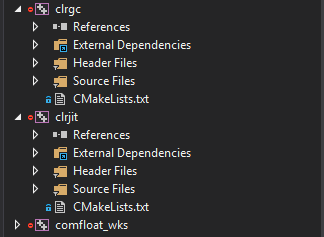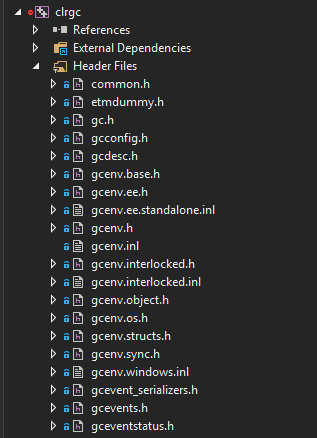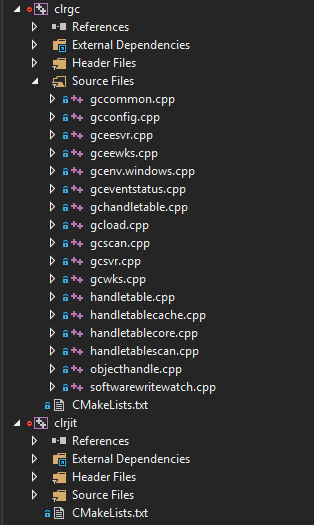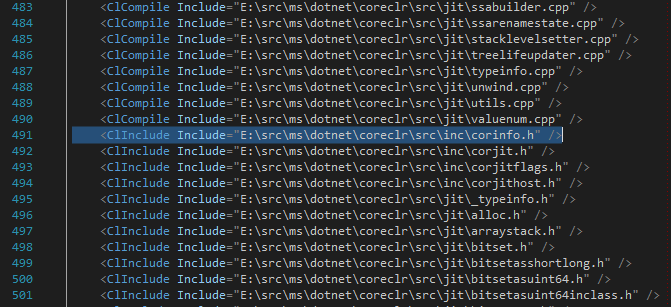New issue
Have a question about this project? Sign up for a free GitHub account to open an issue and contact its maintainers and the community.
By clicking “Sign up for GitHub”, you agree to our terms of service and privacy statement. We’ll occasionally send you account related emails.
Already on GitHub? Sign in to your account
[Infrastructure] Add header files to native Visual Studio coreclr projects #9234
Comments
|
@dotnet/coreclr-contrib @dotnet/jit-contrib @janvorli I may not fully understand, but I assume this would increase the maintenance burden of cmake project files. Can you guys vote (👍, 👎) on the initial comment for whether you would like @4creators to proceed? |
|
@RussKeldorph you are right it would increase the maintenance burden, but I don't think it would be a significant increase due to the fact that it is very rare to add or remove a header to coreclr. But the issue I have with it is that it would bloat the CMakeLists.txt files. Especially in cases where the list of files compiled depends on target architecture and also whether we build debugger DAC stuff or the target binary. Then the includes would also need to be conditionalized accordingly. See e.g. src/vm/CMakeLists.txt. |
|
I am inclined to accept this, but I would hope the generated MSBuild project files use the appropriate |
|
CMake by default classifies C++ files based on their extension and it means that all header files ( clrgc and clrjit projects with headersclrgc expanded headersclrgc expanded sources |
|
@4creators What is shown in the Solution explorer isn't actually relevant in this case - at least from a build perspective. That is handled by the |
|
Looks great! I think this is definitely worth doing. @janvorli any other concerns? arr |
|
Can we close this now? |
|
@AaronRobinsonMSFT Not yet. There are several projects which are waiting for conversion. I am doing it step by step. |
|
@4creators I think you have converted all of the projects already and the issue can be closed, right? |
|
@janvorli There are still 3 small ones to be converted. I will try to go back to them in September if that's OK. |
|
@4creators of course! Thank you. |
|
Due to lack of recent activity, this issue has been marked as a candidate for backlog cleanup. It will be closed if no further activity occurs within 14 more days. Any new comment (by anyone, not necessarily the author) will undo this process. This process is part of our issue cleanup automation. |




Currently CMake is used according to standard pattern where only
.cppfile are included into targets with library or executable. However, this pattern breaks some usability of CMake created Visual Studio projects since they do not include header files by default and it is necessary to search for them in VS project dependencies directory containing several hundred files or scroll to top of code file and click "open file" on include directive. Obviously none of this is convenient even for medium sized code files.If proposal will be accepted I could provide PR with required changes.
The text was updated successfully, but these errors were encountered: